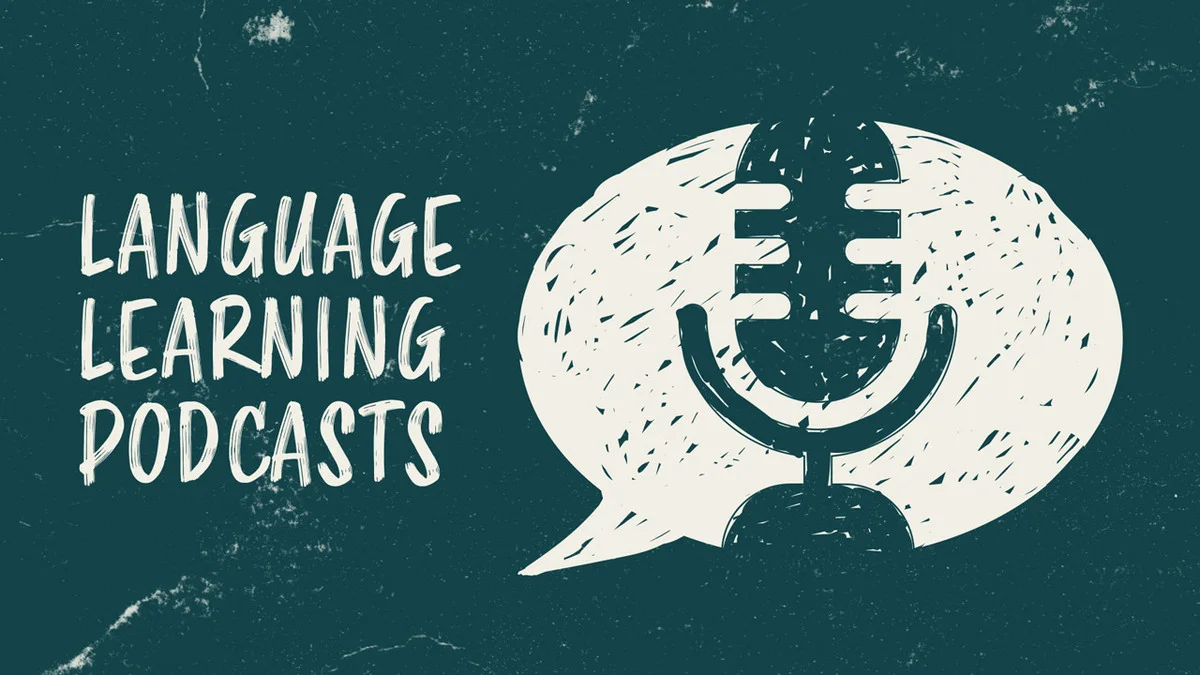Address
304 North Cardinal St.
Dorchester Center, MA 02124
Work Hours
Monday to Friday: 7AM - 7PM
Weekend: 10AM - 5PM

In today’s fast-paced world, finding effective and flexible methods to learn a new language is essential. Podcasts have emerged as one of the most convenient and engaging tools to enhance language learning. Whether you’re commuting, exercising, or relaxing at home, listening to podcasts can help improve your language skills effortlessly. In this article, we’ll explore how to learn a language with podcasts and why they’re an essential resource for modern learners.
Flexibility: You can listen to podcasts anytime, anywhere—whether you’re cooking, walking, or on your way to work.
Real-Life Language: Many podcasts focus on conversational language, exposing you to how native speakers communicate in real life.
Improves Listening Skills: Podcasts help you become familiar with the natural speed, rhythm, and accent of native speakers.
Cultural Exposure: Many language podcasts include cultural insights, helping you understand the context behind certain phrases or idiomatic expressions.
Beginner, Intermediate, or Advanced: Ensure the podcast matches your current proficiency. For beginners, slow-paced podcasts with basic vocabulary are ideal. Advanced learners may benefit from podcasts that feature native speakers discussing complex topics.
Variety: Look for podcasts that cover a wide range of topics—grammar, vocabulary, culture, and real-life dialogues.
Transcripts: Some podcasts provide transcripts, which are incredibly useful for following along and improving reading and comprehension skills.
Duolingo Podcast: A great choice for intermediate learners. It features engaging stories in both the target language and English to help you follow along.
Coffee Break Languages: Offers lessons in various languages, with a structured format perfect for beginners.
News in Slow [Language]: Available in multiple languages (Spanish, French, Italian, etc.), it presents news stories at a slower pace, allowing learners to catch every word.
Language Transfer: Focuses on grammar and sentence structure in an easy-to-understand way, great for both beginners and intermediate learners.
Innovative Language Podcasts: With lessons tailored to various proficiency levels, these podcasts are available in over 30 languages.
4.1. Active Listening vs. Passive Listening
Active Listening: Set aside dedicated time to focus entirely on the podcast. Take notes, pause, and repeat sections to reinforce learning.
Passive Listening: Listen while doing other activities to immerse yourself in the language. This will help you become more familiar with the natural flow of the language.
4.2. Follow Along with Transcripts
If the podcast offers transcripts, use them! Reading along as you listen helps you connect spoken and written language, improving comprehension and retention.
4.3. Repeat What You Hear
To improve pronunciation and fluency, pause the podcast and repeat key phrases or sentences. This helps you mimic native speakers’ accents and intonations.
4.4. Set Realistic Goals
Set clear goals to track your progress. For example, commit to listening to one podcast episode daily or mastering a set number of new words each week.
4.5. Combine with Other Learning Methods
While podcasts are an excellent tool, they work best when combined with other methods, such as speaking practice, reading, and language apps like Duolingo or Memrise.
Spotify: Offers a wide variety of language learning podcasts across multiple languages.
Apple Podcasts: Another popular platform with podcasts suitable for all levels.
Google Podcasts: A free and accessible platform with plenty of language resources.
Stitcher: Known for its curated lists, Stitcher offers language learning podcasts in different languages.
TuneIn: Features a wide range of language learning and international radio shows for immersive listening.
Convenience: You can learn on the go, fitting language practice into your daily life effortlessly.
Improved Pronunciation: Regularly listening to native speakers helps improve your pronunciation and understanding of accents.
Cultural Awareness: Many language podcasts delve into cultural aspects, providing a richer learning experience.
Cost-Effective: Many language learning podcasts are free or low-cost, making them an affordable learning option.
Self-Paced Learning: You control the pace of your learning, allowing you to move quickly or take your time with more challenging material.
Conclusion
Podcasts are an incredible tool for language learners at every level. They offer flexibility, immersion, and exposure to real-life conversations in your target language. By following the tips outlined in this guide—choosing the right podcasts, practicing active listening, and combining podcasts with other learning tools—you’ll be well on your way to mastering a new language.
Start listening to podcasts today, and turn your commute or daily activities into valuable language learning sessions!